Bom-Wrapper
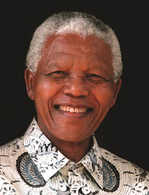
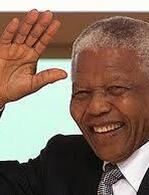
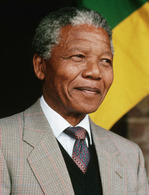
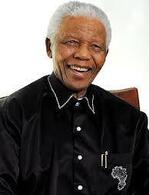
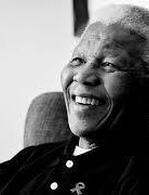
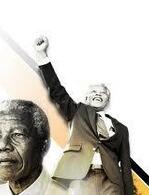
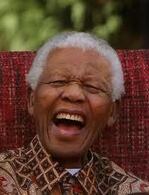
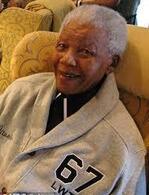
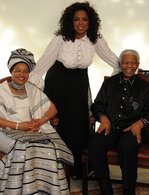
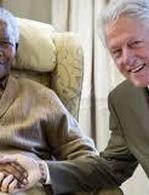
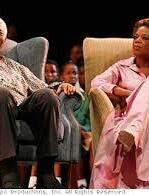
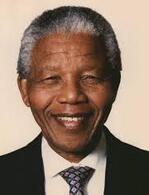
In Memory of
President Nelson Rolihlahla
Mandela
Mandela
1918 -
2013
2013
Menu
- Service Details
- Obituary/Life Story
- Condolences and Tributes
- Light a Memorial Candle
- Send Flowers
- Memories
- Share
- Comments and Suggestions
Cannon Funeral Home Services
47 W. Polk Street 271
Chicago, Illinois
UNITED STATES
60605
In the event that there is an error
in the information presented,
please contact the funeral
home by clicking here.
Obituary for President Nelson Rolihlahla Mandela
The Mandela who led the African National Congress into government displayed a conspicuous sense of his own dignity and a self-belief that nothing in 27 years of imprisonment had been capable of destroying.
Although Mr Mandela frequently described himself as simply part of the ANC's leadership, there was never any doubt that he was the most potent political figure of his generation in South Africa.
Nelson Mandela shakes hands with FW De Klerk No bitterness... Mandela and De Klerk
To the wider world he represented many things, not least an icon of freedom but also the most vivid example in modern times of the power of forgiveness and reconciliation. Back in the early 1990s, I remember then President, FW De Klerk, telling me he how he found Mandela's lack of bitterness "astonishing".
His fundamental creed was best expressed in his address to the sabotage trial in 1964. "I have fought against white domination, and I have fought against black domination," he said.
"I have cherished the ideal of a democratic and free society in which all persons live together in harmony and with equal opportunities. It is an ideal which I hope to live for and to achieve. But if needs be, it is an ideal for which I am prepared to die."
Born in 1918, Rolihlahla Dalibhunga Mandela was raised in the village of Qunu in the Transkei in the Eastern Cape. He was one of 13 children from a family with close links to the royal house of the Thembu people.
Mr Mandela often recalled his boyhood in the green hills of the Transkei with fondness. This was a remote landscape of beehive-shaped huts and livestock grazing on poor land.
He was only nine when his father died of tuberculosis. Always closer emotionally to his mother, Mr Mandela described his father as a stern disciplinarian. But he credited his father with instilling the instincts that would help carry him to greatness.
Although Mr Mandela frequently described himself as simply part of the ANC's leadership, there was never any doubt that he was the most potent political figure of his generation in South Africa.
Nelson Mandela shakes hands with FW De Klerk No bitterness... Mandela and De Klerk
To the wider world he represented many things, not least an icon of freedom but also the most vivid example in modern times of the power of forgiveness and reconciliation. Back in the early 1990s, I remember then President, FW De Klerk, telling me he how he found Mandela's lack of bitterness "astonishing".
His fundamental creed was best expressed in his address to the sabotage trial in 1964. "I have fought against white domination, and I have fought against black domination," he said.
"I have cherished the ideal of a democratic and free society in which all persons live together in harmony and with equal opportunities. It is an ideal which I hope to live for and to achieve. But if needs be, it is an ideal for which I am prepared to die."
Born in 1918, Rolihlahla Dalibhunga Mandela was raised in the village of Qunu in the Transkei in the Eastern Cape. He was one of 13 children from a family with close links to the royal house of the Thembu people.
Mr Mandela often recalled his boyhood in the green hills of the Transkei with fondness. This was a remote landscape of beehive-shaped huts and livestock grazing on poor land.
He was only nine when his father died of tuberculosis. Always closer emotionally to his mother, Mr Mandela described his father as a stern disciplinarian. But he credited his father with instilling the instincts that would help carry him to greatness.
To send flowers to the family or plant a tree in memory of President Nelson Rolihlahla Mandela, please visit our Heartfelt Sympathies Store.
Order Flowers
Life Story for President Nelson Rolihlahla Mandela
The Mandela who led the African National Congress into government displayed a conspicuous sense of his own dignity and a self-belief that nothing in 27 years of imprisonment had been capable of destroying.Although Mr Mandela frequently described himself as simply part of the ANC's leadership, there was never any doubt that he was the most potent political figure of his generation in South Africa.
Nelson Mandela shakes hands with FW De Klerk No bitterness... Mandela and De Klerk
To the wider world he represented many things, not least an icon of freedom but also the most vivid example in modern times of the power of forgiveness and reconciliation. Back in the early 1990s, I remember then President, FW De Klerk, telling me he how he found Mandela's lack of bitterness "astonishing".
His fundamental creed was best expressed in his address to the sabotage trial in 1964. "I have fought against white domination, and I have fought against black domination," he said.
"I have cherished the ideal of a democratic and free society in which all persons live together in harmony and with equal opportunities. It is an ideal which I hope to live for and to achieve. But if needs be, it is an ideal for which I am prepared to die."
Born in 1918, Rolihlahla Dalibhunga Mandela was raised in the village of Qunu in the Transkei in the Eastern Cape. He was one of 13 children from a family with close links to the royal house of the Thembu people.
Mr Mandela often recalled his boyhood in the green hills of the Transkei with fondness. This was a remote landscape of beehive-shaped huts and livestock grazing on poor land.
He was only nine when his father died of tuberculosis. Always closer emotionally to his mother, Mr Mandela described his father as a stern disciplinarian. But he credited his father with instilling the instincts that would help carry him to greatness.
